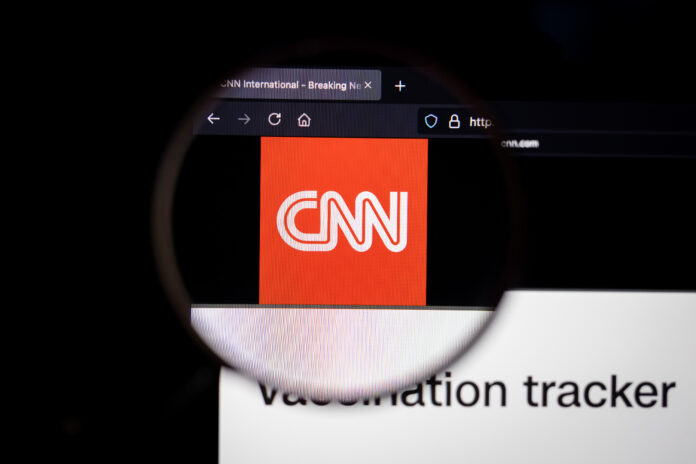
In a recent development that has left many questioning the credibility of mainstream media, CNN has been forced to issue a correction for a story that falsely accused Israel of bombing a hospital in Gaza. The initial report, which was based on information from the Palestinian Health Ministry, a body controlled by Hamas, claimed that hundreds were likely killed in the strike on Al-Ahli Baptist Hospital. However, it has since been revealed that the actual perpetrators were Islamic militants who had intended to target Israeli civilians.
The correction issued by CNN came after the network faced backlash for its hasty and unverified reporting. The corrected version of the story attributes the claims about Israel’s responsibility to the Hamas-controlled Ministry of Health in Gaza. It also acknowledges that the blast was caused by a ‘misfired’ rocket fired by the militant group Islamic Jihad, not an Israeli airstrike. This aligns with the Israeli government’s account of the incident, which was backed by US intelligence and supported by CNN’s own forensic analysis of images and videos.
#Sarah_Sidner co-anchor of #CNN News issued an apology after she #claimed #Hamas beheaded babies in #Israeli Occupation settlements but she made a little fire claiming it was a !!! . What has become to CNN? How come #journalists lost ethics to be sensationalist spreaders #Gaza pic.twitter.com/2MH6vHoaPt
— Nebalu2🇸🇦 (@Nebalu2) October 21, 2023
Despite the correction, the damage caused by the initial false reporting is significant. The incident underscores the challenges faced by Israel as it strives to protect its citizens from jihadist threats. The country finds itself battling not only against terrorists but also against a media landscape that often seems eager to amplify unverified claims without due diligence.
This episode also raises serious questions about the role and responsibilities of the media in times of conflict. In their rush to break news, media outlets like CNN risk becoming unwitting mouthpieces for terrorist propaganda. By failing to verify the source of their information, they contribute to the spread of misinformation and potentially endanger lives.
See point 5 and the CNN reporter’s apology. pic.twitter.com/u0X2SFmh4f
— Bianca van Wyk (@BiancavanWyk16) October 22, 2023
Yet, instead of offering an apology for its error, CNN merely issued a quiet correction. This lackluster response is unlikely to reach as many readers as the initial, false report did. It also does little to restore the trust that has been eroded by the network’s failure to uphold basic journalistic standards.
The incident serves as a stark reminder of the need for media outlets to exercise caution and skepticism, especially when dealing with sources that may have vested interests. It also underscores the importance of waiting for official comments and corroborating evidence before publishing potentially inflammatory claims.
In conclusion, this episode is a sobering lesson in the dangers of rushing to publish news without thorough fact-checking.
It is a call to action for all media outlets to uphold their duty to provide accurate and unbiased reporting, even in the face of pressure to be the first to break a story.











